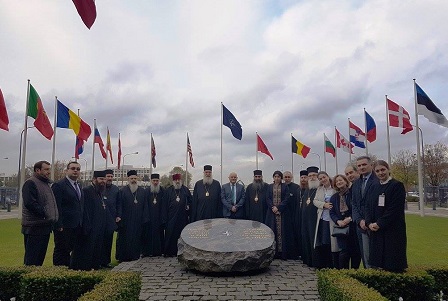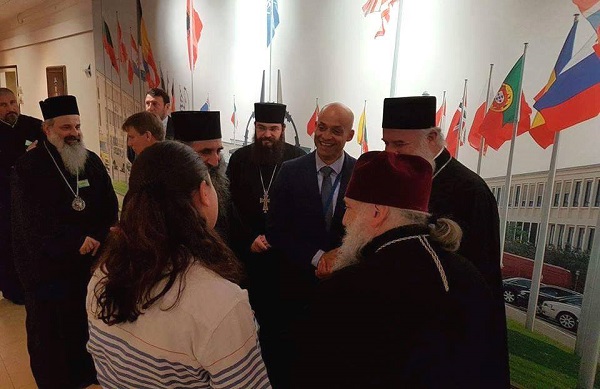Georgia’s Patriarchate admits it had ‘wrong view’ of NATO-EU after visiting Brussels

Georgia’s Patriarchate says it had the "wrong view" about certain policies of the North Atlantic Treaty Organisation (NATO) and the European Union (EU) but has since changed its perception of the two international agencies in the wake of the Georgian spirituals’ four-day trip to Belgium, Brussels.
Today the Patriarchate spoke about the November 7-11 meetings in Brussels, and stated both sides came away from the meeting with a fresh opinion on each others' organisations.
The Patriarchate said before the meetings NATO and EU representatives had false opinions about the Georgian church but this had changed. Georgia's Patriarchate stressed the meetings were "high level”, supportive and allowed the Euro-Atlantic structures to exchange views with Georgian spiritual leaders.
The Patriarchate said it had been incorrectly informed that NATO and the EU objected learning religious studies as a subject at school and were told that in fact religious studies were taught in many secondary schools in EU member countries.

Georgian spirituals at NATO headquarters in Brussels. Photo by Georgia's Ministry for European and Euro-Atlantic Integration press office.
The Georgian spirituals said in Brussels they were also told that "none of the official documents operating in the EU or NATO encouraged same-sex marriage and prohibited marriage, as the unity of only a man and a woman, to be written in a country’s main laws.”
When it came to the issue of Georgia’s assimilation into the Euro-Atlantic structures, the Patriarchate stressed this was a decision the people of Georgia needed to make.
The Georgian church respects the decision of our people and believes that the following issues are of utmost importance: Georgia must be independent, Georgia’s territorial integrity should be restored and the country should develop based on traditional values,” the Patriarchate said.
The Georgian church noted it supported Georgia's friendly ties with any foreign nation.
- Members of Georgia’s Holy Synod and representatives from the Patriarchate of Georgia were accompanied to Brussels by staff of Georgia’s State Ministry for European and Euro-Atlantic Integration.
- The visit was part of the project Georgia and the European Union which aimed to inform Georgia’s spiritual leaders about the country’s Euro-Atlantic integration and increase their involvement in the process.
- The project is implemented by the Centre for Development and Democracy (CDD) together with Georgia’s NATO and EU Information Centre, the Ministry for European and Euro-Atlantic Integration and Georgia’s Patriarchate.
- The project is financially supported by the British Embassy in Georgia.
 Tweet
Tweet  Share
Share